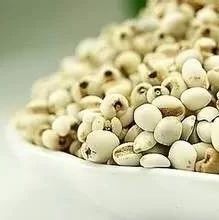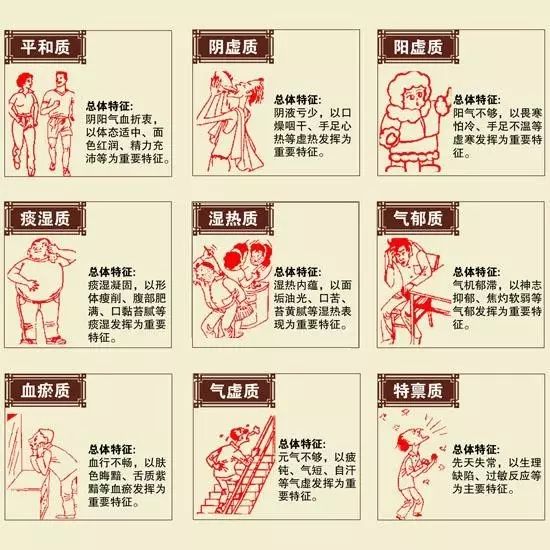
Qi Deficiency (Qi Xu)
Characterized by introversion, emotional instability, timidity, and a dislike for risk-taking.
Yang Deficiency (Yang Xu)
Typically presents as a calm and introverted personality, often feeling lethargic, with a tendency towards low spirits, indifference, and self-doubt. It is important for individuals with this constitution to find healthy outlets for their emotions and to cultivate generosity.
Excess Yang or Yin Deficiency (Yang Sheng or Yin Xu)
Often characterized by impatience, extroversion, and a tendency to feel irritable.
Qi Stagnation (Qi Yu)
Commonly associated with feelings of depression, gloominess, introversion, and a tendency towards sentimentality and narrow-mindedness.
Those who are adept at health preservation should focus on self-cultivation and nurturing both body and spirit to enhance constitution, prevent disease, and promote overall health. When adjusting lifestyle, it is essential to choose appropriate measures and methods based on individual constitutional characteristics.
Excess Yang Constitution
Often manifests as a robust physique, a preference for cool environments, loud voice, flushed face, irritability, excellent appetite, and constipation.
This constitution should early on utilize cooling products to improve constitution, such as wheat, mung beans, fava beans, bitter melon, kiwi, apples, bananas, water spinach, and watermelon.
Individuals with excess Yang or Yin deficiency tend to be impatient, extroverted, and often feel irritable. It is important to avoid excessive emotional extremes that can deplete Yin blood. Maintaining calm and a stable mindset is crucial.
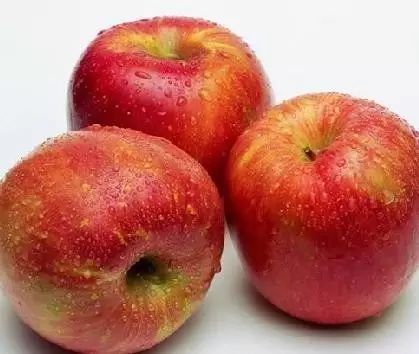
Yin Deficiency Constitution
Commonly presents with a thin physique, dry mouth and throat, intolerance to heat, preference for cold drinks, five-center heat (palms and soles), constipation, short and red urine, sore lower back and knees, red tongue with little coating, and thin rapid pulse. Treatment should focus on nourishing Yin fluids, using nourishing Yin products early on.
Diet should include sweet, cool, and moistening fruits, vegetables, and meats, such as pears, bananas, water chestnuts, lotus root, lilies, sugarcane, kiwi, watermelon, rabbit meat, and duck meat to cool and nourish Yin and generate fluids. For those with excess heat, consider using herbs like Huang Lian (Coptis), Huang Qin (Scutellaria), Shi Gao (Gypsum), and Zhi Mu (Anemarrhena) to clear heat, while those with deficiency heat can use Goji berries (Gou Qi Zi), Sheng Di Huang (Rehmannia), and Mai Dong (Ophiopogon) to nourish Yin and generate fluids.
Avoid spicy and dry foods, such as chili peppers, ginger, scallions, and garlic; limit consumption of warming foods and drinks like dog meat, deer meat, beef, lamb, and alcohol.
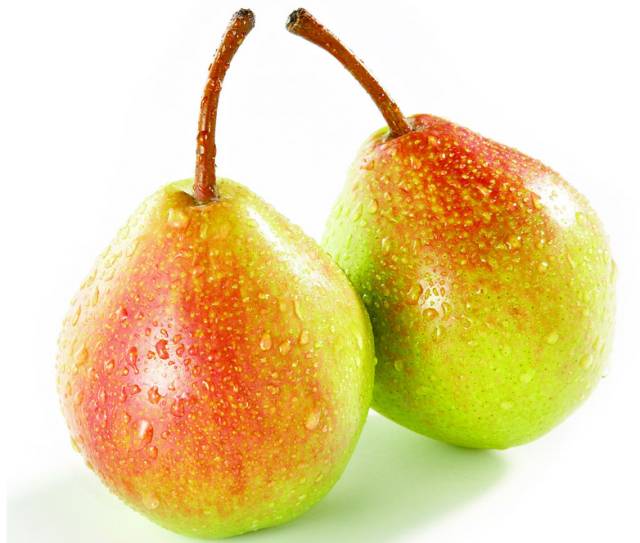
Yang Deficiency Constitution
Commonly presents with cold limbs, fatigue, shortness of breath, soft stools, intolerance to cold, pale tongue with white coating, and weak pulse. This constitution should focus on protecting Yang energy and warming Yang. Foods such as oranges, cherries, bayberries, ginkgo, pomegranates, longan, lychee, rice wine, leeks, fennel, lamb, dog meat, and chicken are beneficial warming tonics to improve cold deficiency constitution.
Individuals with Yang deficiency tend to be calm, introverted, often feeling lethargic, with low spirits, indifference, and self-doubt. They should find healthy ways to express their emotions and cultivate a generous spirit.

Qi Deficiency Constitution
Commonly presents with fatigue, pale complexion, soft voice, frequent sweating, especially upon exertion, palpitations, and poor appetite. This constitution should focus on tonifying Qi. Foods such as millet, japonica rice, glutinous rice, lentils, yam, and lotus seeds are beneficial for tonifying Qi and strengthening the spleen.
Individuals with Qi deficiency often have introverted personalities, emotional instability, timidity, and a dislike for risk-taking. They should cultivate an optimistic and open-minded attitude towards life, avoid excessive mental strain, and maintain a stable and peaceful mindset, steering clear of excessive worry and sadness.
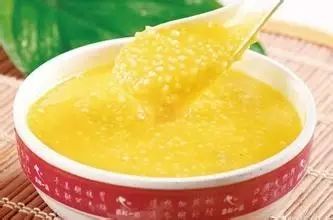
Phlegm-Damp Constitution
Commonly presents with obesity, a preference for rich foods, chest fullness, nausea, poor appetite, heaviness, and dizziness, with a greasy tongue coating and slippery pulse. This constitution should utilize products that strengthen the spleen and eliminate dampness, such as white lentils, red beans, fava beans, coix seeds, yam, winter melon, lotus seeds, jellyfish, radish, onions, and bamboo shoots.
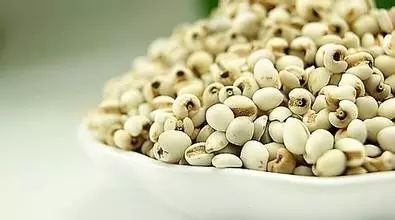
Blood Stasis Constitution
Commonly presents with dull skin tone, dark circles under the eyes, rough skin, possible scaly peeling, or fine red scars, with a purplish tongue and a choppy pulse. This constitution should utilize products that invigorate blood and dispel stasis, such as garlic chives, black fungus, mushrooms, hawthorn, brown sugar, yellow wine, red wine, white wine, and Salvia miltiorrhiza (Dan Shen).
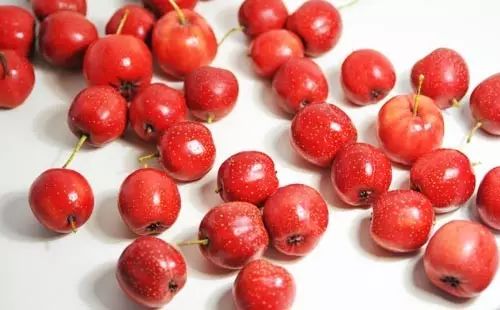
Having a pathological constitution that leans towards Yin or Yang is itself a manifestation of sub-health. Only by paying attention to identifying one’s constitution and practicing health preservation can one optimize their constitution and maintain the balance and coordination of Yin, Yang, Qi, and blood in the organs. Different pathological constitutions have a tendency to develop related diseases; if one does not pay attention to health preservation, under certain triggers, it is easy to develop related diseases. Therefore, understanding one’s constitution type and using dietary therapy or medicinal foods to optimize and improve constitution is the most proactive and personalized approach to health preservation.
Research on the Foundations of TCM Theory, Zheng Hongxin (Editor)


